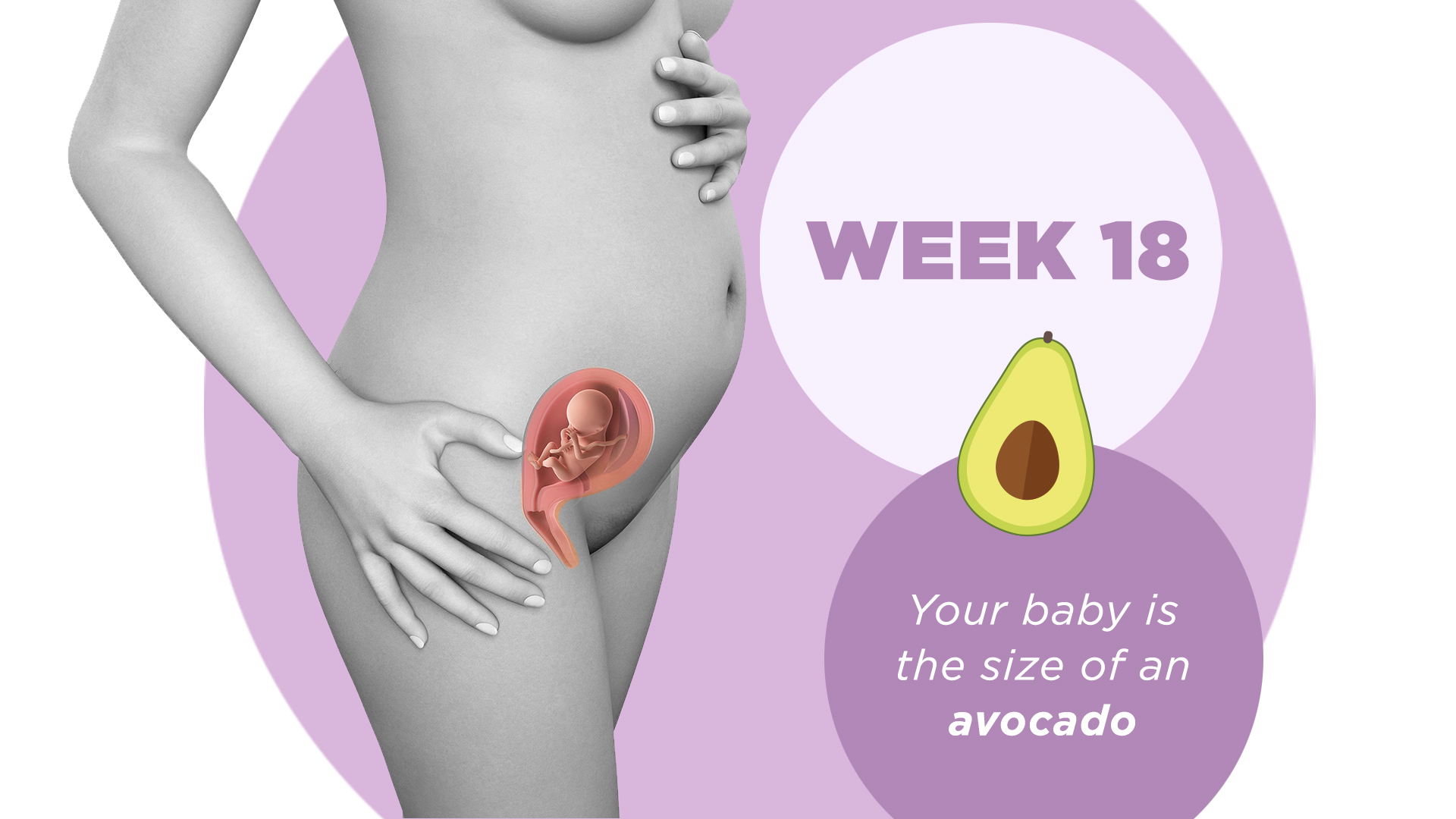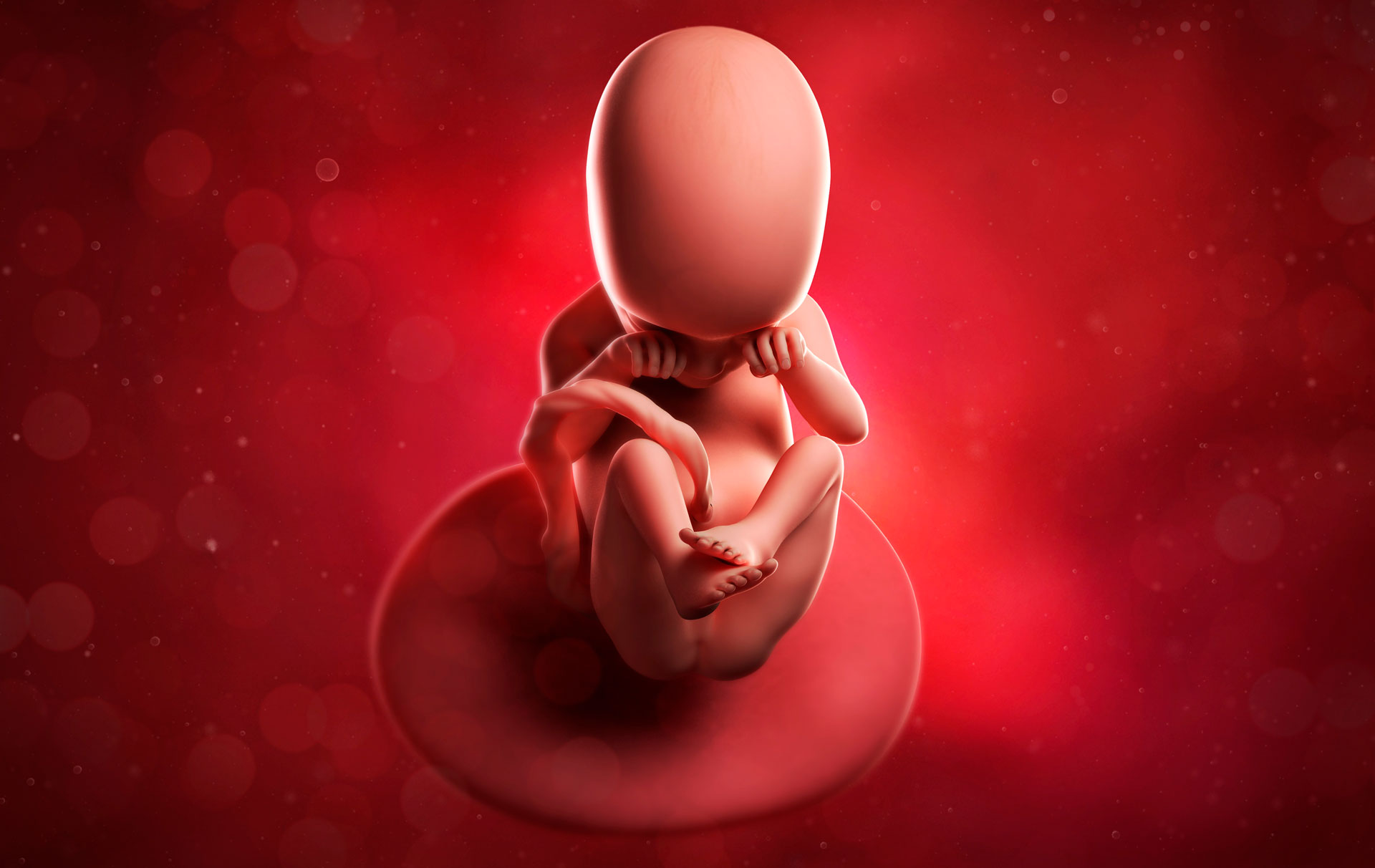18 weeks pregnant - symptoms, fetal development and what to consider
You've almost reached the half-way point

Parenting advice, hot topics, best buys and family finance tips delivered straight to your inbox.
You are now subscribed
Your newsletter sign-up was successful
You're just under half way when you're 18 weeks pregnant, so you'll be starting to feel your baby grow rapidly. There are lots of things to think about at this stage, from tests and scans to the typical symptoms you might be experiencing.
Symptoms at 18 weeks pregnant
Are you feeling a fluttery sensation in your bump? That's your baby kicking. These early baby movements feel like soft tapping, butterflies or even indigestion above the pubic bone and they're not strong enough for your partner to feel. But don't worry if you haven't felt anything yet... You may have several more weeks to wait. Many women who are expecting their first babies don't feel any movements until around 20 weeks.
Around this time you may start to notice thread veins, spider veins or broken veins appearing on your legs, or that the veins on your calves appear more prominent. During pregnancy your blood volume increases by about 45-50% which inevitably puts an extra burden on your veins. What's more the increase in the pregnancy hormone progesterone causes the blood vessels to relax. During the third trimester this can develop into large swollen varicose veins which can be painful and tender.
Varicose veins are most common in women who've already had one or more pregnancies and if your mother or sister suffers from them then you're more likely to follow in the same vein.
To lessen the condition try and elevate your legs as much as possible, avoid standing for long periods and do gentle leg exercises like ankle circling and calf stretches. Wearing class two support stockings or other forms of compression tights may give relief and help reduce the number of veins you get during pregnancy. Talk to your GP who may be able to prescribe these to you on the NHS.
Fetal development at 18 weeks pregnant
Your baby is around 14 cm long and weighs roughly 190g. The soft bones are beginning to harden, the chest is moving up and down to mimic breathing, although no air is being taken in, only amniotic fluid. Male babies are developing their prostate gland.
Your baby now has a greater covering of the fine downy hairs called lanugo which started to appear several weeks ago. At this stage your baby has very little body fat to keep him warm so it is believed that lanugo hair grows as a means of insulation. Amazingly your baby is using his larynx to produce sound vibrations.
Parenting advice, hot topics, best buys and family finance tips delivered straight to your inbox.

The changes you should make at 18 weeks pregnant
Although often referred to as your 20-week pregnancy scan, you may get an appointment any time from 18 weeks onwards for a fetal anomaly scan. This is your baby's top-to-toe health check and is carried out at a point when his skeleton and internal organs such as the heart and kidneys are clearly visible. The sonographer will carry out a number of checks and measurements. These include:
- The circumference and width of your baby's head. This is one of the best indicators of a baby's age.
- The length and shape of the spine are checked and the umbilical cord is checked to see that it contains two arteries and a vein.
- The lungs and the heart, with its four chambers and major blood vessels will be looked at.
- Everything within the abdomen will be checked and the kidneys and bladder will both be carefully examined.
- The appearance and position of the face and neck are examined.
- The position and length of your baby's arms and legs will be checked to ensure all the bones are present and that they are the right shape and size.
- The appearance of hands and feet will be checked.
- The site of the placenta will be checked to see if it's low lying and in danger of blocking the cervix.
- A scan may confirm your baby's sex.
If you're expecting twins who have been identified as sharing a placenta you will probably have an ultrasound scan this week. This may be a simple growth scan or the full anomaly scan.
You could have the Quadruple Test this week and some women will have an amniocentesis this week, too.
If pregnancy is making it difficult for you to do your normal job (perhaps it involves standing up for long periods of time or lifting) you are entitled to special help or even alternative employment. Talk to your employer.
Don't forget to take money with you as most hospitals have a small charge of around £3-£5 for a scan photo. And when you get them home don't try to laminate them as they're printed on thermal paper and the heat will damage them. Because they can also fade with time, it's a good idea to scan them in and keep them safely the cloud.
Further advice and information:
- Visit the NHS for more pregnancy week by week advice
- Download a pregnancy tracker app
- View all our pregnancy week by week guides
Anna Bailey has been the editor of GoodtoKnow since 2018. Before joining the team she was Features Editor at MSN UK, where she oversaw Family Health and Days Out. Previously, she was Digital Lifestyle Editor for the broadcaster UKTV, and Lifestyle Editor for ITV.com. Anna studied Multi-Media Journalism at Bournemouth University and went on to gain her NCTJ and NCE journalism qualifications. Anna is responsible for driving the direction and editorial strategy of Goodto. A mum and experienced baby product tester, she is passionate about providing safe, trustworthy, and relatable advice for families of all kinds.